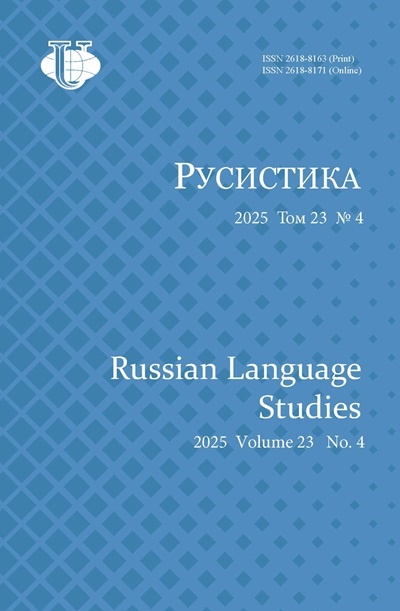Поиск
Выпуск
Название
Авторы
|
Иванов Е.Е. |
|
Хамраева Е.А., Шаповалов М.И., Ковтун Л.В. |
|
Никитина Т.Г., Панова И.А., Рогалёва Е.И. |
|
Комышкова А.Д. |
|
Лавицкий А.А. |
|
Лавицкий А.А. |
|
Полякова Е.М. |
|
Пивовар Е.С. |
|
Маслова В.А. |
|
Карасик В.И., Китанина Э.А. |
|
Никитин О.В. |
|
Митрофанова И.И. |
|
Трофимова Г.Н. |
|
Мифтахова А.Н., Маклеева Е.А. |
|
Денисенко А.В., Березняцкая М.А., Калинина Ю.М. |
|
Виноградов С.Н. |
|
Маркова Е.М. |
|
Смирнова Е.В. |
|
Фу Цзе -. |
|
Тарасова Е.Н., Лвин Н.Н., Макоева Ф.С. |
|
Янь К. |
|
Гусман Тирадо Р. |
|
Серова Л.К., Шабаева А.В. |
|
Чан Тхань Тунг -. |
|
Воробьев В.В., Скнарев Д.С., Тагаев М.Д. |
|
Васильева Г.М. |
|
Прохорова А.В. |
|
Новиков А.Л., Рыбаков М.А. |
|
Харченко В.К. |
|
Никитина Т.Г., Рогалёва Е.И. |
|
Гаспарян Н.К. |
|
Ибрагим В.Ф. |
|
Лихачев С.В., Попова Е.И. |
|
Ашчи М., Мухаммад Л.П., Татаринова Н.В. |
|
Фернандес Санчес Ю.В. |
|
Немыка А.А., Ушаков А.А. |
|
Арынбаева Р.А., Маханова Ж.К., Дмитрюк Н.В. |
|
Хамшовски С.А. |
|
Елизарьева М.А. |
|
Василюк И.П. |
|
Валентинова О.И., Рыбаков М.А., Екшембеева Л.В. |
|
Мамонтов А.С. |
|
Голубенко Е.А. |
|
Ипатова Г.Н., Серова Л.К. |
|
Воробьёв В.В., Полякова Г.М. |
1 - 45 из 45 результатов
Подсказки:
- Ключевые слова чувствительны к регистру
- Английские предлоги и союзы игнорируются
- По умолчанию поиск проводится по всем ключевым словам (агенс AND экспериенцер)
- Используйте OR для поиска того или иного термина, напр. образование OR обучение
- Используйте скобки для создания сложных фраз, напр. архив ((журналов OR конференций) NOT диссертаций)
- Для поиска точной фразы используйте кавычки, напр. "научные исследования"
- Исключайте слово при помощи знака - (дефис) или оператора NOT; напр. конкурс -красоты или же конкурс NOT красоты
- Используйте * в качестве версификатора, напр. научн* охватит слова "научный", "научные" и т.д.











